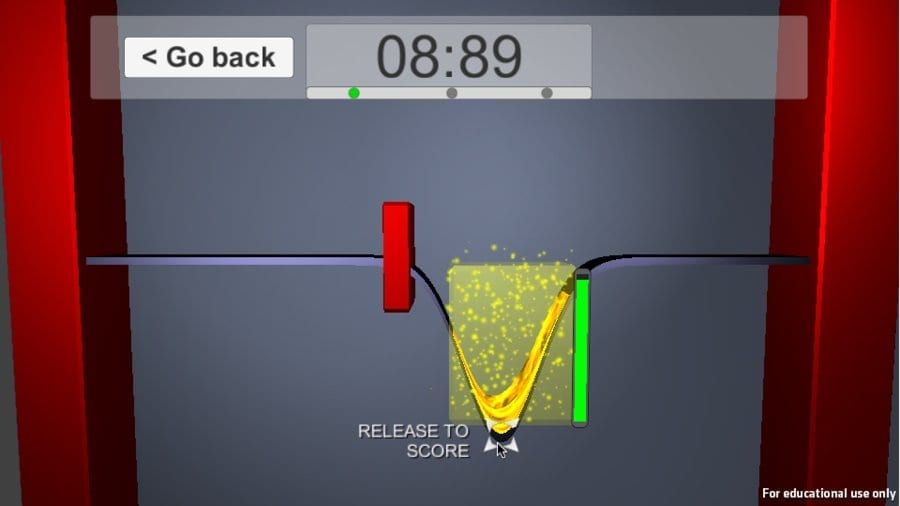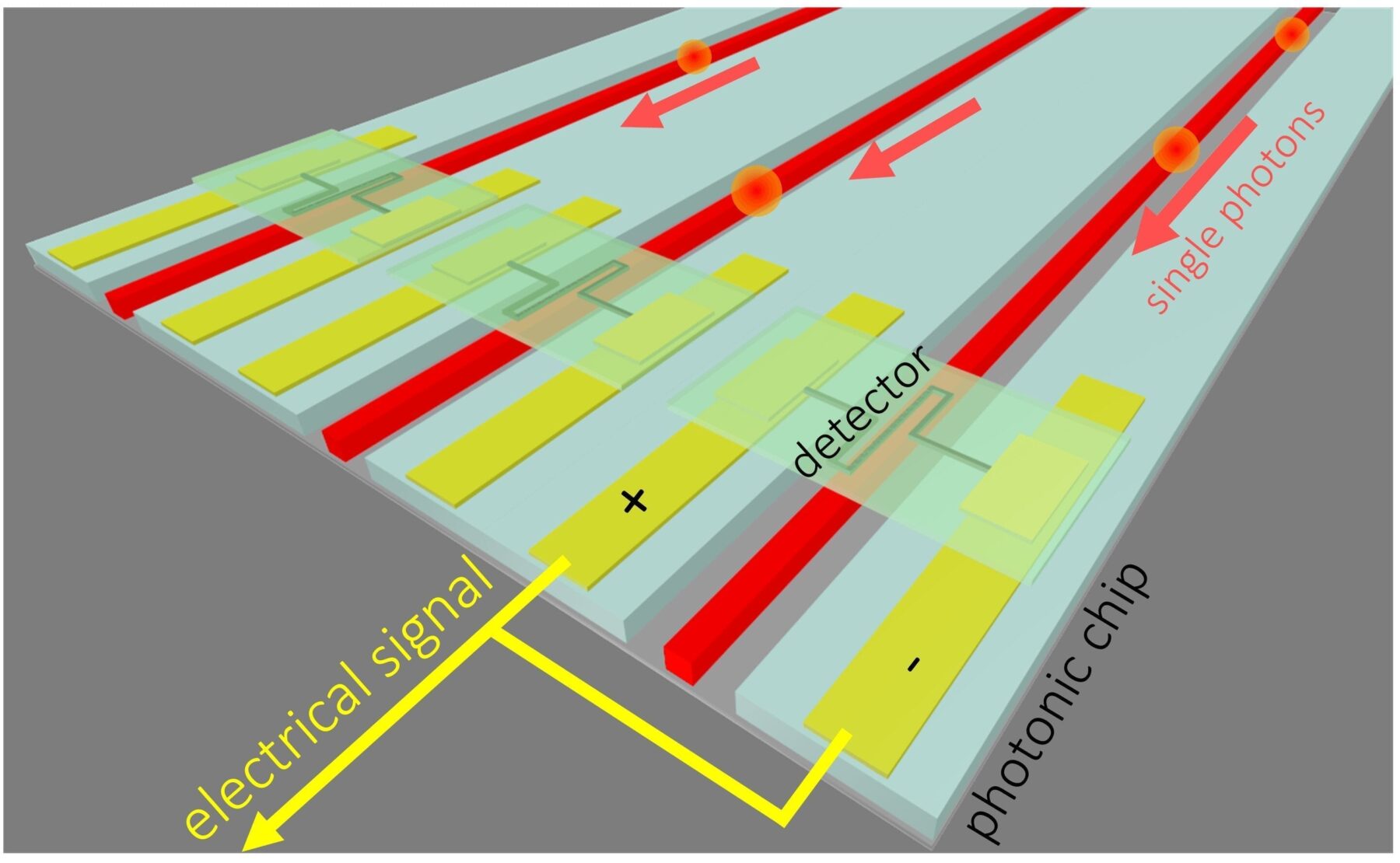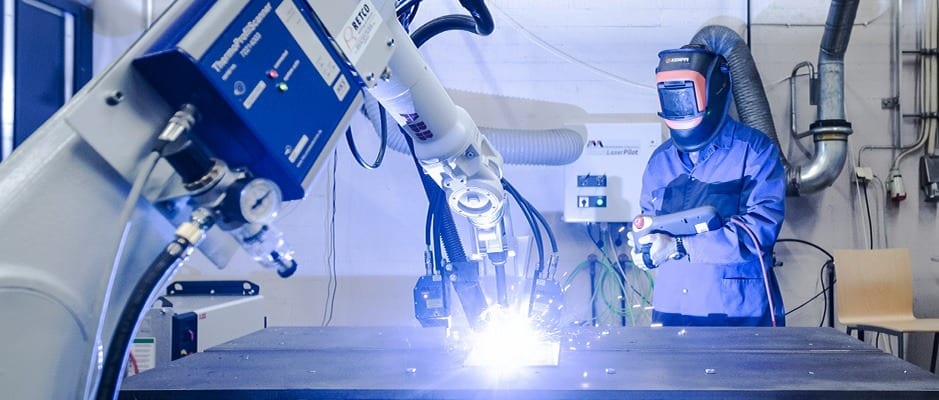
Using a computer game, a research group at Aarhus University has found a way to gain deeper insight into the human thought process.
The results have amazed the research director, who has discovered a kind of ‘atlas of thoughts’. And that is not all. The group can also reveal which gender is best at solving quantum problems.
Are humans born with the ability to solve problems or is it something we learn along the way? A research group at the Department of Physics and Astronomy, Aarhus University, is working to find answers to this question.
The research group has developed a computer game called Quantum Moves, which has been played 400,000 times by ordinary people. This has provided unique and deep insight into the human brain’s ability to solve problems. The game involves moving atoms around on the screen and scoring points by finding the best way to do so.
In this way, ordinary people contribute to quantum physics research. Associate Professor Jacob Sherson, director of the research group, explains that a player’s ability to make a strategy and solve a problem is markedly different from the way a computer works. Based on 400,000 game solutions, he can make a start on compiling the results.
“We’re very grateful that the game has been so well received. We’ve seen that the players were surprisingly good at solving the problems we raised in the game. We saw, for instance, a player who’d only studied ninth-grade physics, but was able to solve a quantum physics problem that you’d normally need a PhD in physics just to understand. The game has proved to be a very effective way to map the human thought process,” he says.
The aim of Quantum Moves was to develop a game that could help the researchers look for new ways to develop quantum computers by providing them with insight into the thoughts of a person as opposed to the process in a computer.
“The players showed us that there’s an unexploited capacity for ingenuity in the human brain. We see solutions that a computer would never have allowed, and which optimise the processes,” says Associate Professor Sherson.
Boys versus girls
The group is not yet ready to make a conclusion about the balance of power between man and machine, but one thing they can already say in a clear voice is that females were better at solving problems than males. The results were recently published in the prestigious journal Human Computation.
Read more: ATLAS OF THOUGHTS
The Latest on: Citizen Science
[google_news title=”” keyword=”Citizen Science” num_posts=”10″ blurb_length=”0″ show_thumb=”left”]
via Google News
The Latest on: Citizen Science
- Citizen science project finds that respectful boat users are rewarded with magical dolphin encounterson May 2, 2024 at 1:42 pm
A citizen science project reveals that most boat users along the North-East coast in the U.K. do not disturb dolphins and are often rewarded with close-up encounters.
- Zooniverse Secures Prestigious Open Science Award from the White Houseon May 2, 2024 at 10:23 am
Read Zooniverse Secures Prestigious Open Science Award from the White House Gallery of Zooniverse project avatars. Credits: ...
- TOI-837 b is a young Saturn-sized exoplanet with a massive core, observations findon May 2, 2024 at 3:50 am
European astronomers have performed photometric and spectroscopic observations of a distant giant exoplanet known as TOI-837 b. As a result, they found that TOI-837 b is a young Saturn-sized planet ...
- South Australian Citizen Science Award nominations openon May 1, 2024 at 10:48 pm
Nominations are now open for the Citizen Science Awards, which highlight the achievements of South Australian citizen science projects in [...] ...
- NASA science chief Nicky Fox speaks at the universityon May 1, 2024 at 10:00 am
NASA Associate Administrator for the Science Mission Directorate Nicky Fox visited the university April 18 for a presentation on the NASA administration’s current projects and a tour of the university ...
- Reflecting back on 45 years of personal experience with science, technology, engineering, and math (STEM)on April 30, 2024 at 4:05 am
Ihave been feeling nostalgic lately. Several things going on in my life have me reflecting upon the past and thinking about the future – especially as it relates to my ...
- What is a sovereign citizen? A look at antigovernment belief that has led to violenceon April 29, 2024 at 7:11 pm
A man killed Saturday in a shootout with Polk County sheriff's deputies was identified as a member of the sovereign citizen movement by Sheriff Grady Judd.
- Bear-tracking study celebrates citizen science in Alberta's grizzly countryon April 28, 2024 at 4:30 am
An Alberta study celebrates how citizen scientists can help researchers better protect populations of the elusive grizzly bear. But critics say that without more government action, the species will ...
- Across the Finish Line! Citizen Science Month Final Days.on April 26, 2024 at 10:42 am
One Million Acts of Science challenge met, but lots of important project work is still left!
- You might find a rare species in your backyard: How global citizen science contributes to biodiversity knowledgeon April 26, 2024 at 9:28 am
While it can be hard for us to notice as we go about our busy lives, cities are filled with indigenous plants, fungi, insects, spiders and other little creatures, as well as birds, frogs and reptiles.
via Bing News










